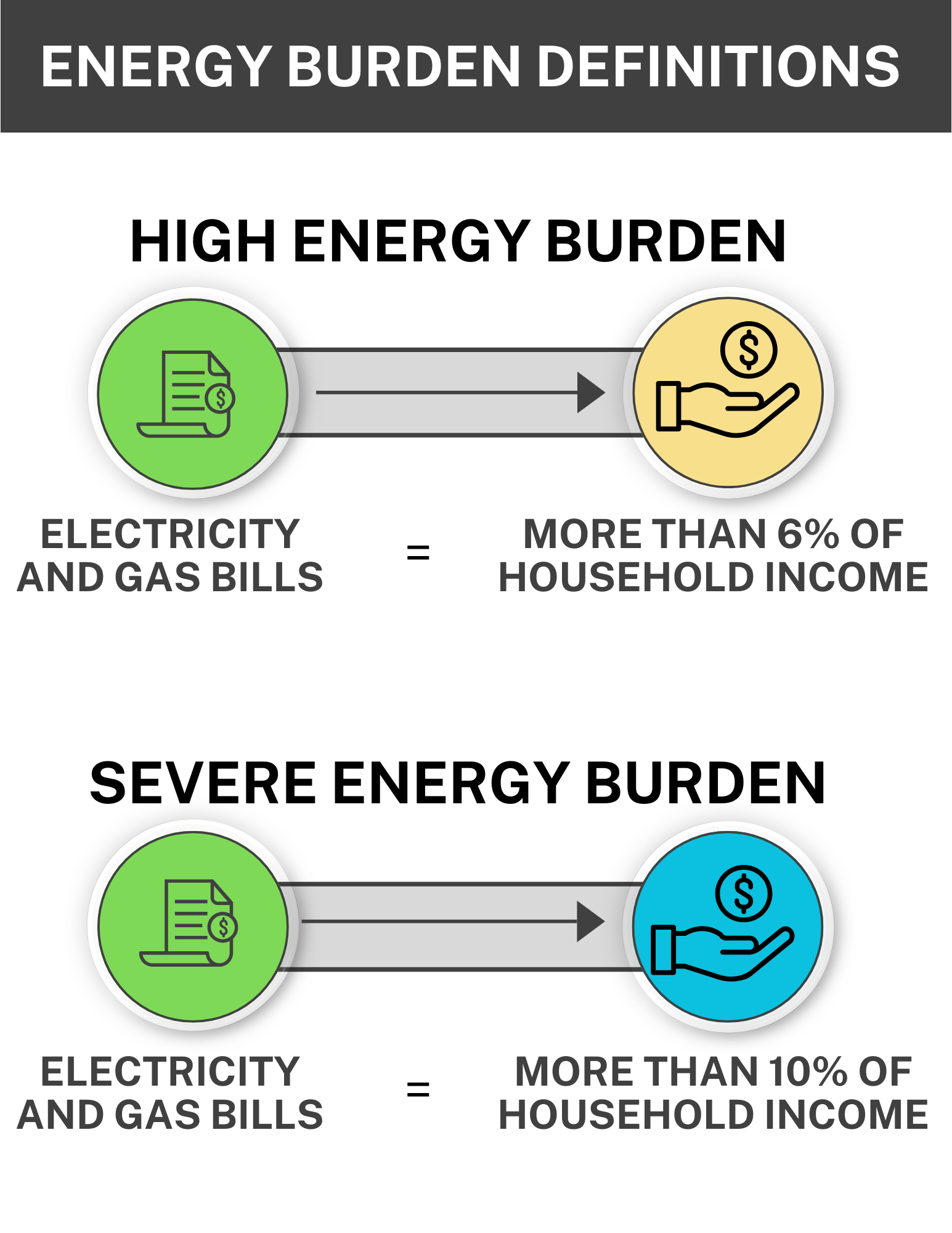What is energy equity?
Energy equity means understanding that everyone has unique needs when it comes to energy. It’s about working with people to help them get the energy they need for things like cooking and keeping their homes cool in summer and warm in winter. It also means making sure our energy systems—like solar, electricity, and fossil fuels—do as much good as possible in our communities while reducing any harm.

What is energy poverty and energy burden?
Energy poverty is when a family can’t afford the energy they need for basics like heating, cooling, and cooking. Energy burden measures this problem by looking at the percentage of a family's income spent on energy bills. If a family spends more than 6% of their income on energy, their burden is high. If they spend more than 10%, it’s severe. Another way to measure energy burden is by asking people if they’re able to keep their homes cool in summer and warm in winter.

How does energy burden affect Phoenix residents?
Our city is getting hotter for longer! In Phoenix, we’re now having more nights where it stays above 90 degrees. In 2023, most indoor heat-related deaths in Maricopa County happened in homes where the AC was either broken or not being used. Studies show that low-income families in Phoenix wait longer to turn on their AC than higher-income families. This means they suffer more from the heat and face more health issues.
This is a big problem because it can make families choose between paying for energy and other basics like rent, food, or medical bills. Heat also impacts health, causing stress, anxiety, asthma, and other risks. Having these basics covered is important for students to do well in school and for all of us to stay healthy.
The following maps show the percentage of low-income households that are experiencing high (yellow) and severe (blue) energy burden in the Phoenix Metropolitan Area.
.png)
How is the City of Phoenix addressing this issue?
We are proposing an Energy Access Plan (EAP) to address energy poverty in our city. The EAP is part of a larger effort.
In 2021, Phoenix created its first Climate Action Plan (CAP). This plan takes a big-picture approach, setting goals in many areas: equity and environmental justice, transportation, waste, air quality, food, heat, water, and energy. These goals aim to make Phoenix a livable place for future generations. Right now, the city is reaching out to the community to update everyone on CAP’s progress and to get input on how to make it even better. We’re also using this opportunity to gather ideas and support for the EAP to help end energy poverty.
Cities worldwide are working on energy issues, and Phoenix is no exception. By creating the EAP, Phoenix is showing leadership as a member of the C40 Cities Climate Leadership Group, in line with the Global Covenant of Mayors, the Carbon Disclosure Project, and the United Nations’ Sustainable Development Goal 7.
The Phoenix Energy Access Plan (EAP) aims to address energy poverty in the city by:
- Establishing a starting point and setting a goal between October and December 2024
- Hosting a webinar to explain the EAP, get feedback on how the community wants to be involved, and share the city’s proposed goal.
- In 2025, we’ll host community workshops where people can give input to finalize the goal, help develop specific actions to address energy poverty, and create a way to track our progress.
Join the conversation!
Phoenix residents are at the heart of shaping solutions to this challenge. There will be a variety of opportunities for residents to share your thoughts on our energy equity goal and actions in Phoenix's Energy Access Plan. These events will not only share how the city is tackling energy poverty but also give you the chance to voice your ideas and priorities.
Do you have have questions, input or interest in staying informed about upcoming events? Email us at energy@phoenix.gov.
